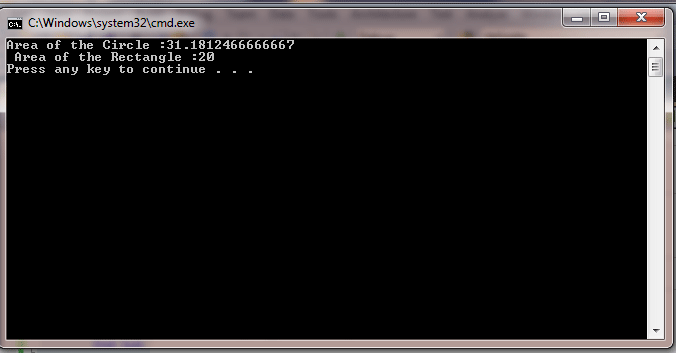How to Method Overloading in VB.NET
This article shows Method Overloading in VB.NET.
In this article We will see that how to define function Overloading and how to use Function Overloading in VB.NET.
In method overloading, multiple method having the same name but different type of argument. sometimes our reqirement needs us to be able to create more function with same names this allows programer to provide easiness to the user by allowing user to use single name for different purposes.
For example:
Public Overloads Sub area(ByVal r)
Public Overloads Sub area(ByVal length, ByVal width)
In the above example there are two method which has the same name but use for different purpose one define the area of circle and other define the area of rectangle. Both method have the different parameter.
The following code define the Function overloading:
Imports System
Module Module1
Class overload
Dim r As Double
Public Overloads Sub area(ByVal r) // define the function name area
Console.Write("Area of the Circle :")
Console.WriteLine(1 / 3 * 3.14 * r * r * r)
End Sub
Dim length As Integer
Dim width As Integer
Public Overloads Sub area(ByVal length, ByVal width) // define the function area
Console.Write(" Area of the Rectangle :")
Console.WriteLine(length * width)
End Sub
End Class
Sub Main()
Dim r As New overload() // creating object of the class overload
r.area(3.1)
r.area(4, 5)
End Sub
End Module
OUTPUT:

Conclusion:
Hope this article would have helped you in understanding Method Overloading in VB.NET.